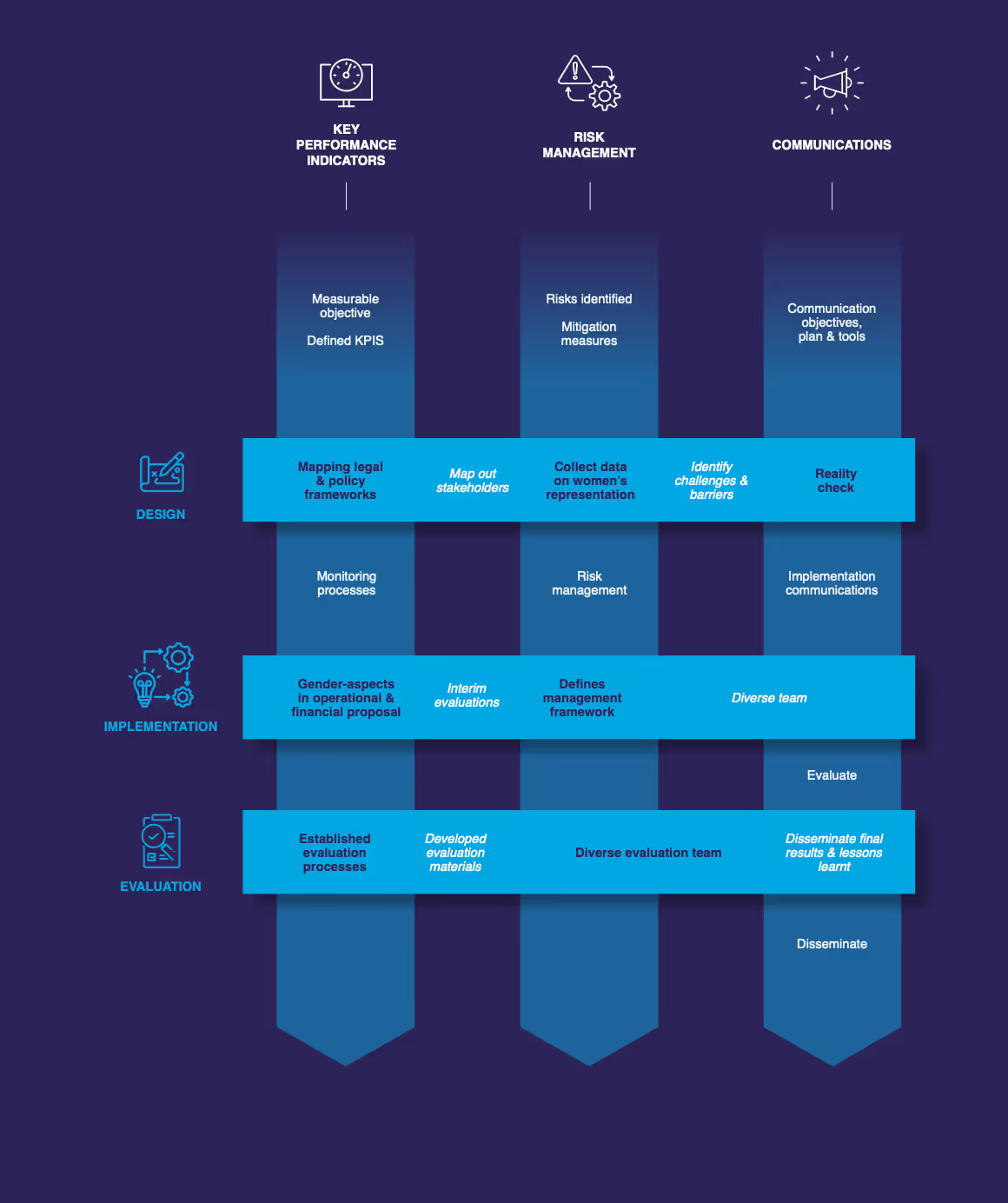WIIS Brussels recommends 10 gender-sensitive policies to improve women's representation in security and counterterrorism sectors

August 14, 2023
Women in International Security (WIIS) Brussels published a report on women in the security and counterterrorism sectors, comparing women's representation in these sectors from 2021 to 2022, highlighting why gender parity in these sectors is beneficial to wider society, and finally making 10 recommendations to improve women's representation.
Funded by the European Union (EU), the research project revealed that the average number of women serving in the military services – globally – increased from 11.4% in 2021 to 12.6% in 2022. It is worth noting the significant regional differences – for instance, only 1.1% of military officers are women in Saudi Arabia, while 26.2% of Nepalese military officers are women. Regarding police officers, the report showed a global 1.3% decrease in women officers, from 23.3% in 2021 to 22% in 2022. Turning to international peacekeeping missions, the United Nations was able to achieve gender parity in 2022 for head and deputy head positions. That being said, women leadership of EU missions continues to be much lower, ie. 0% of women heads in military executive missions and 27.3% women heads of civilian missions.
Prior to making recommendations on how best to improve the above representation of women, the report first detailed why improving the gender-balance in counterterrorism and the criminal justice response would be beneficial to wider society. For instance, gender-balanced policing can improve the community's access to justice – this is because women officers are often perceived as more approachable, and SGBV victims often only feel comfortable reporting crimes to other women. More diverse recruitment in the counterterrorism sector can also encourage new perspectives, striving towards a more culturally-sensitive and nuanced approach to justice, eg. mitigating against gender cliches that do not accommodate for female combatants during criminal investigations and prosecutions.
And so, the report makes the following policy recommendations:
- Capitalise on factors favourable to women’s promotion
- Develop and propose tailored solutions
- Adopt a comprehensive approach
- Demonstrate the operational benefits of more women in counterterrorism and criminal justice response
- Improve recruitment, retention and promotion of women
- Focus on practical details
- Recruit men as allies
- Inspire and attract women
- Allocate funding to targeted policies
- Sustain women’s promotion in CT and CJR for the long-term
To see the full report, see here

August 14, 2023
WIIS Brussels recommends 10 gender-sensitive policies to improve women's representation in security and counterterrorism sectors

August 14, 2023
Women in International Security (WIIS) Brussels published a report on women in the security and counterterrorism sectors, comparing women's representation in these sectors from 2021 to 2022, highlighting why gender parity in these sectors is beneficial to wider society, and finally making 10 recommendations to improve women's representation.
Funded by the European Union (EU), the research project revealed that the average number of women serving in the military services – globally – increased from 11.4% in 2021 to 12.6% in 2022. It is worth noting the significant regional differences – for instance, only 1.1% of military officers are women in Saudi Arabia, while 26.2% of Nepalese military officers are women. Regarding police officers, the report showed a global 1.3% decrease in women officers, from 23.3% in 2021 to 22% in 2022. Turning to international peacekeeping missions, the United Nations was able to achieve gender parity in 2022 for head and deputy head positions. That being said, women leadership of EU missions continues to be much lower, ie. 0% of women heads in military executive missions and 27.3% women heads of civilian missions.
Prior to making recommendations on how best to improve the above representation of women, the report first detailed why improving the gender-balance in counterterrorism and the criminal justice response would be beneficial to wider society. For instance, gender-balanced policing can improve the community's access to justice – this is because women officers are often perceived as more approachable, and SGBV victims often only feel comfortable reporting crimes to other women. More diverse recruitment in the counterterrorism sector can also encourage new perspectives, striving towards a more culturally-sensitive and nuanced approach to justice, eg. mitigating against gender cliches that do not accommodate for female combatants during criminal investigations and prosecutions.
And so, the report makes the following policy recommendations:
- Capitalise on factors favourable to women’s promotion
- Develop and propose tailored solutions
- Adopt a comprehensive approach
- Demonstrate the operational benefits of more women in counterterrorism and criminal justice response
- Improve recruitment, retention and promotion of women
- Focus on practical details
- Recruit men as allies
- Inspire and attract women
- Allocate funding to targeted policies
- Sustain women’s promotion in CT and CJR for the long-term
To see the full report, see here




